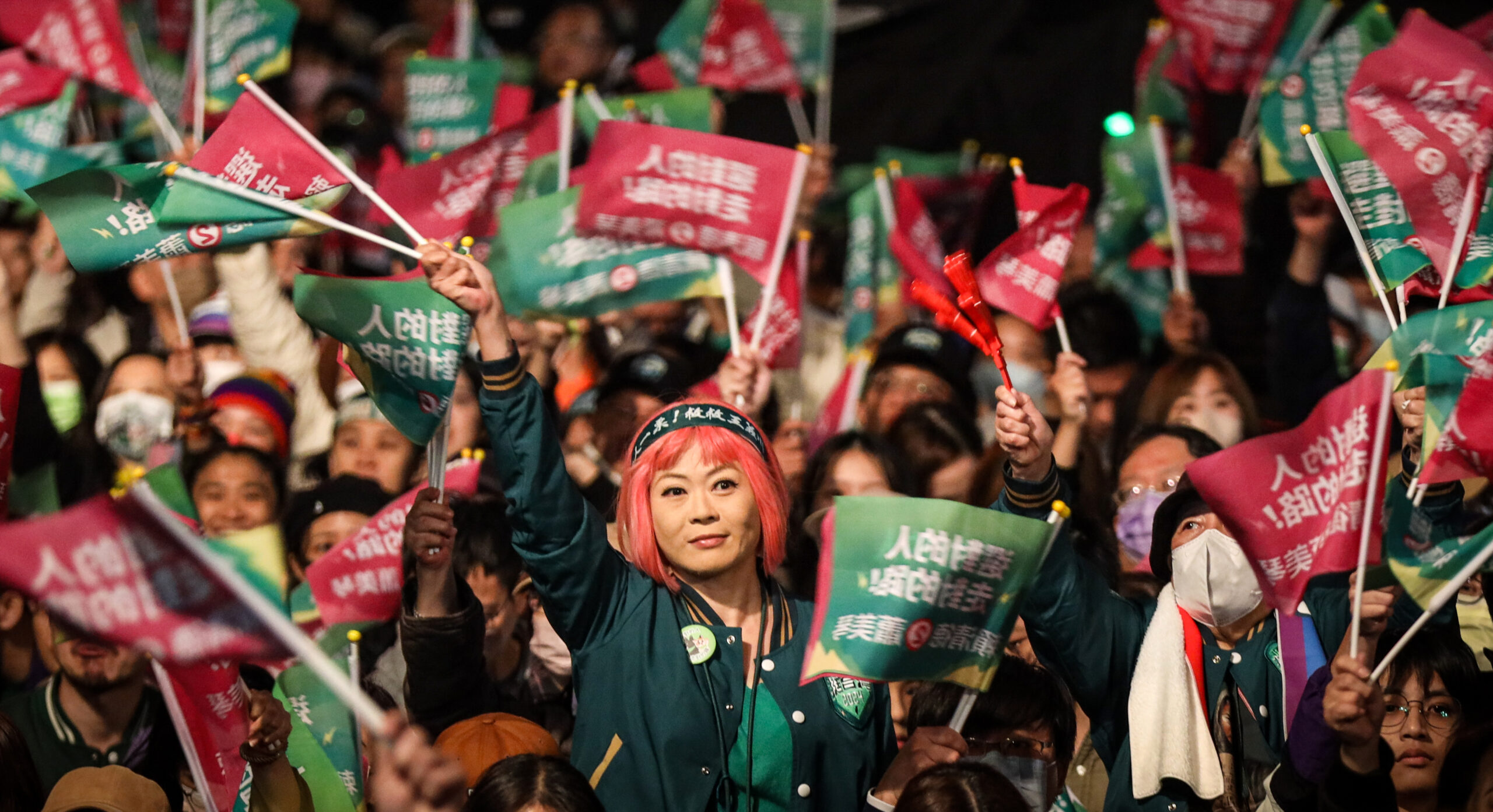Taiwan could well be the future battleground between the world’s two great superpowers. But yesterday’s election shows that Taiwanese people are more concerned about bread-and-butter issues like inflation, wages, and rent than a looming Chinese invasion.
The DPP pro-independence candidate Lai Ching-Te won 40% of the votes in a three-horse race against a pro-China candidate who won 33.5%. But it was the success of a third contender, Ko Wen-Je, who managed a remarkable 26.5%, that deserves attention. Ko, a political outsider who won a landslide victory against the pro-China KMT party in the Taipei mayoral election, favours distension with China, but focused his campaign on economic issues. This clearly chimed with a large segment of the electorate who were angry with the two traditional parties; they want to see their domestic concerns addressed without capitulating to Beijing.
The Opposition failed to win the presidential race but succeeded in gaining a majority of seats in the legislative chamber. Xi Jinping’s increasingly aggressive rhetoric might have helped keep the DPP in power, but the success of Ko suggests that domestic issues may be taking on a more central role in Taiwanese politics. Taiwan’s economy slowed down by 1.4% since the pandemic, and inflation, although not as high as in the US, was around 3% at the end of 2023, with many young people struggling to meet the cost of living.
Over the eight years that the DPP has been in power, it has not managed these issues particularly well. Indeed, the China question might be serving as a useful distraction. For the world, however, the main concern is how the results of the elections will impact the prospects of a Chinese invasion of Taiwan. Beijing won’t be happy with the result, and we should expect an increase in military activity in the Taiwan Strait as a reaction to the DPP’s victory. Beyond that Lai, as president, is unlikely to cross Beijing’s stated red line to invade Taiwan: a formal declaration of independence.
Since 1999, the DPP — despite favouring independence — has never risked an all-out confrontation with China. Tsai Ing-wen worked within these margins, supporting Taiwan’s sovereignty while avoiding a formal declaration of independence to prevent crossing Beijing’s red line. Lai, though seen as a stronger advocate for independence, is likely to follow Tsai’s approach of maintaining the status quo and expanding international standing.
The results of the elections show how, like other democracies, Taiwan’s society is fractured. Lai acknowledged the election results and pledged to seek agreements with the opposition, but that is easier said than done. With the opposition in control of the legislative chamber, we will see further tensions in the political system and disputes between supporters of both camps. Ultimately, the security of Taiwan depends much more on the balance of power between the US and China than on Taiwanese politics. While China might serve as a useful foil for the party in power, internal strife may invite Beijing to think that the island will offer less resistance to a hostile takeover. An invasion may not be imminent, but this election result will do little to dissuade Xi Jinping of his broader ambition to recapture the island.











Join the discussion
Join like minded readers that support our journalism by becoming a paid subscriber
To join the discussion in the comments, become a paid subscriber.
Join like minded readers that support our journalism, read unlimited articles and enjoy other subscriber-only benefits.
Subscribe